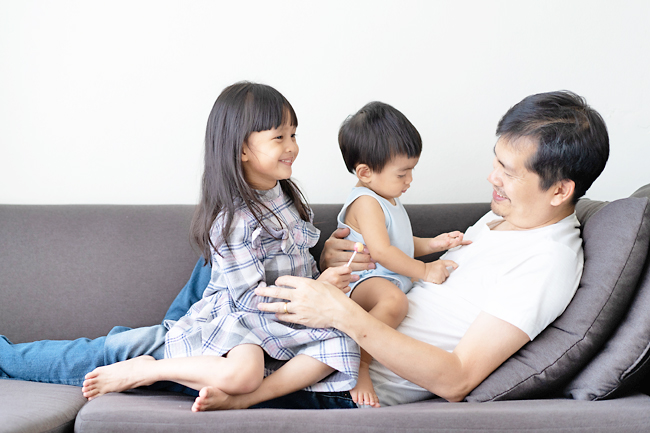Getting divorced is the last thing anyone wants after getting married, but sometimes life brings you to the end of that spousal journey, and you just have to go your own way by finding your own rhythm and purpose in life.
It’s one thing if you get out of that marriage without children; it’s a whole other scenario when there are children involved. While it may not be an easy task for some, especially if the marriage ended on bad terms, putting your children first should still be a priority.
Nearly two years after our divorce, my ex-husband and I are still figuring out the co-parenting journey to ensure our children’s happiness, and while we ended it on good terms, I’m not going to lie and say there aren’t any triggering moments, because there are.
So here are some possibly useful tips for those newly divorced parents to go through in making sure your child’s well-being is prioritised.
THE AGREEMENT
Before finalising our divorce, the first step my ex-husband and I took was drafting an agreement.
This document covers various aspects related to our children, including schooling, finances and time spent with each parent.
Most importantly, it outlines what topics should or should not be discussed in front of our children.


For instance, we made a firm commitment never to speak ill of each other in their presence. We recognised that, especially at a young age, our words and actions shape our children’s views of us as parents.
I, for one, believe that a child’s perception of each parent should be formed independently, free from any influence exerted by the other parent.
PRIORITISING COMMUNICATION
Despite the challenges that may arise from a difficult divorce, make a concerted effort to maintain open, respectful, and frequent communication with your co-parent.
Discussing schedules and important decisions regarding your children and addressing any concerns that arise promptly and calmly is essential for the well-being of everyone involved. The commitment to communication can help navigate even the toughest of situations with grace and understanding.
Again, I cannot stress enough how difficult this may be, considering that a lack of communication might be the reason a couple gets divorced, but for the sake of your own children, it’s something parents need to power through.
One thing is for certain: co-parenting post-divorce requires that shift in mindset – from former spouses to co-parents. You don’t necessarily have to stay friends with your ex, but embracing this transition lays the foundation for effective collaboration and ensures your child receives the love, care, and support they deserve from both parents.
OVERCOMING CHALLENGES
Differences in parenting styles, scheduling conflicts, and unresolved emotional baggage from the divorce are just a few hurdles that exes may encounter, and acknowledging these challenges and working together to find amicable solutions is crucial to fostering a healthy co-parenting dynamic.
Because at the end of the day, and at the heart of it all, there’s a shared commitment to prioritise the well-being of your child above all else.
This means setting aside personal differences and tucking away your egos to work together in making decisions that serve the best interests of your child, whether it’s crafting a parenting schedule, attending school events together, or fostering open communication about the changes in family dynamics.
We don’t need to delve into the personal lives of our ex-spouses. Post-divorce conversations should solely focus on the care of our children, and that’s all that’s necessary.
Moreover, seeking support from family members, friends, or professional counsellors can provide valuable guidance and reassurance during challenging times. You need to remember that you’re not alone in your journey.
And while co-parenting may present its share of challenges, it also offers opportunities for moments of joy and celebration.
Whether it’s cheering your child at a sports game, celebrating academic achievements, or simply spending quality time together as a family, embracing these moments reinforces the bond between co-parents and creates lasting memories for your child, but only if you feel it isn’t too heavy for you to do.
Remember, the path may be challenging, but the rewards of fostering a positive co-parenting relationship are immeasurable – both for you and your children. – Izah Azahari



















































